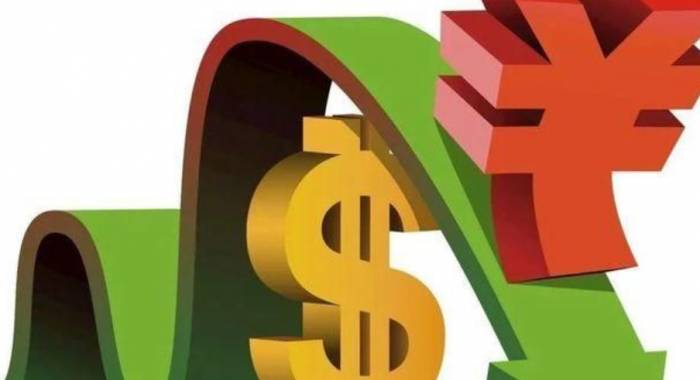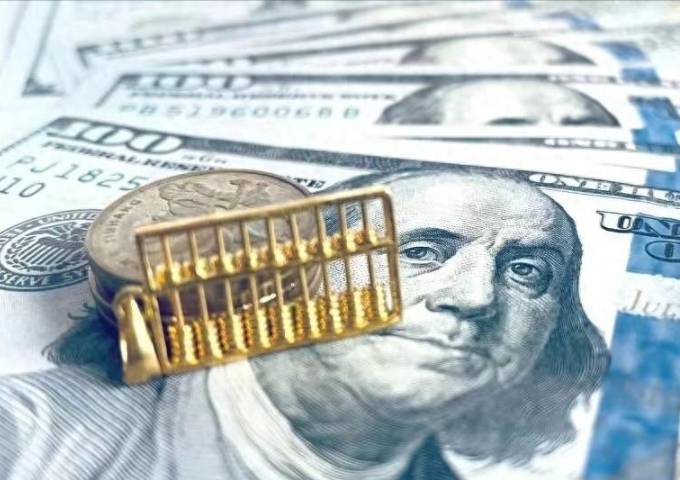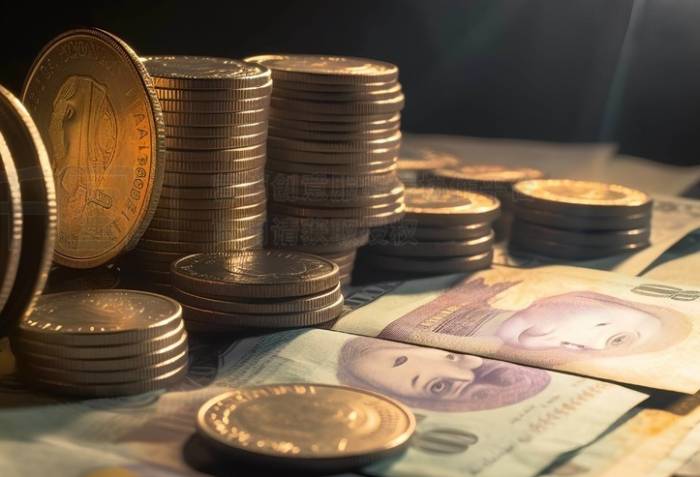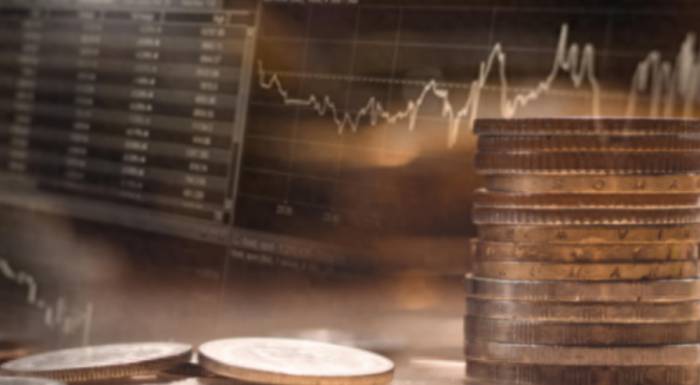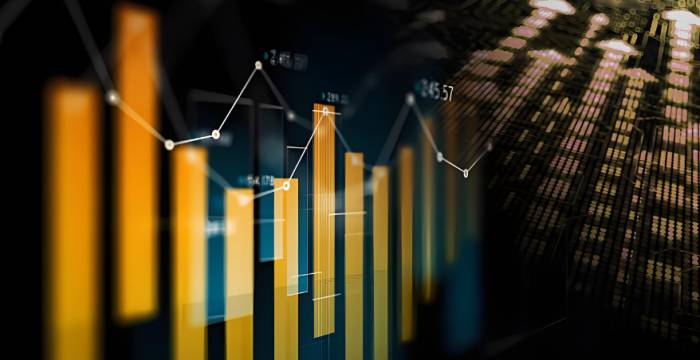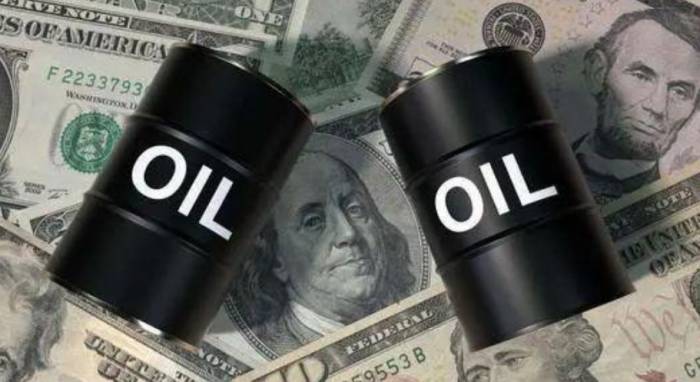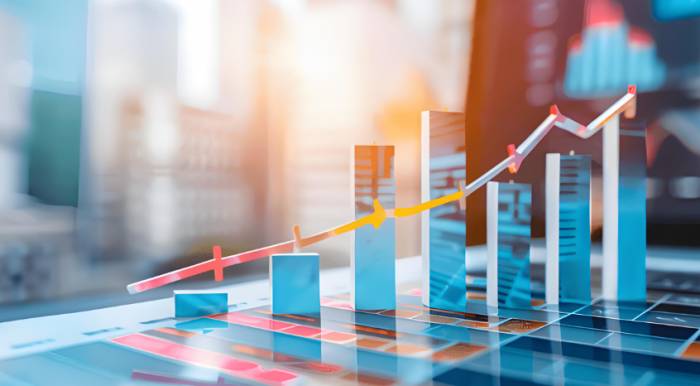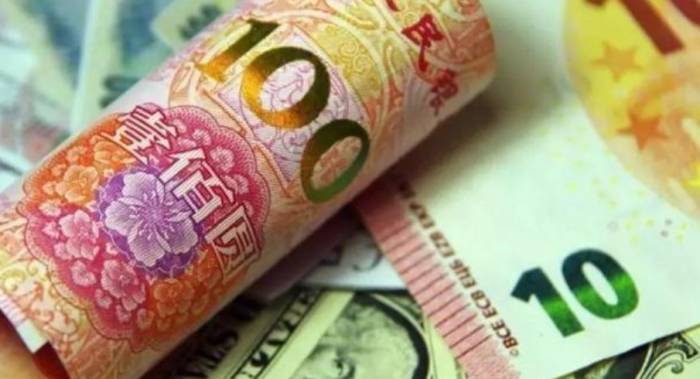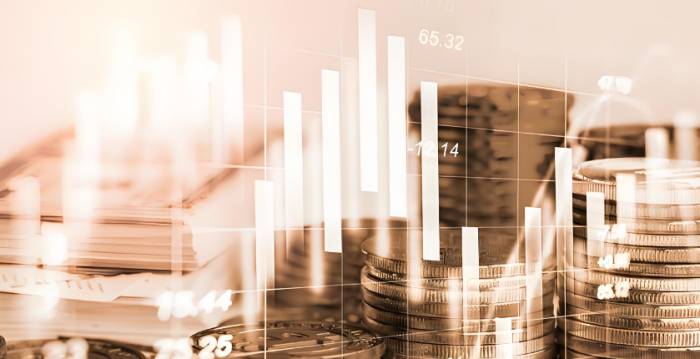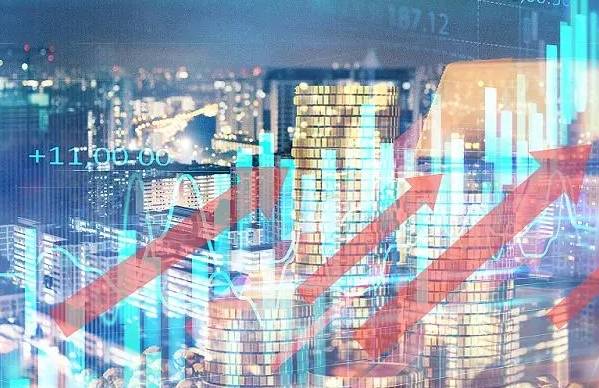Market Overview
Both European and American stocks and bonds suffered losses.
This week, some central bank officials from Europe and America called for caution in lowering interest rates. The long-term U.S. Treasury yield continued to rise, with the 10-year U.S. Treasury yield once breaking through 4.26%, reaching a three-month high along with the U.S. dollar.
The rise in U.S. Treasury yields continued to suppress risky assets. The Dow Jones Industrial Average and the S&P 500 fell by about 1%, marking three consecutive days of decline. The Dow Jones fell by 400 points, the largest drop since early September. The Nasdaq Composite fell by more than 2% during the session. Nvidia once fell by more than 4%. Due to unfavorable news about Vision Pro and the iPhone 16, Apple once fell by 3.4%, but later narrowed its losses driven by AI product news. Tesla's strong earnings report led to a more than 10% increase after the market closed.
Chinese concept stocks turned down, with Pinduoduo falling by nearly 5%, and Li Auto rising by nearly 4%. The offshore yuan once again fell below 7.14 yuan before recovering its losses.
The Japanese yen broke through 153. Bitcoin fell by more than 1%, losing its position at $67,000.
Last week, the U.S. EIA crude oil inventory increased more than expected, and oil prices fell by more than 1%. Spot gold approached a new high of $2,760 before falling by more than 1%, and silver fell by 4%, detaching from its highest level in nearly twelve years.
In the Asian trading session, the Shanghai Composite Index returned to 3,300 points, the Beijing Stock Exchange 50 Index closed up by more than 4%, and Hong Kong stocks opened high and moved higher, with Pop Mart surging by 18%.Breaking News
Tesla's Profit Surprise: Q3 EPS Rises by 9%, Gross Margin Increases by 195 Basis Points to 19.8%, Cybertruck Achieves First Positive Gross Margin, Shanghai Factory Expected to Begin Delivering Megapack in Q1 Next Year. Cybercab Set for Mass Production in 2026, Texas Factory Anticipated to Have 50,000 Nvidia H100s by End of This Month, Stock Soars Over 10% After Hours.
Reports Indicate Apple Reduces Vision Pro Output, Renowned Analyst Suggests iPhone 16 Orders Decline; Apple's First AI Features Coming Next Week, Next Batch with Integrated ChatGPT Enters Developer Testing; For AI, Apple to Launch Three M4 Chip Mac Models Next Week, Aiming to Upgrade All Mac Models by Next Year.
Nvidia CEO: Blackwell Chip Design Flaws Have Been Fixed.
Arm Threatens to Revoke Qualcomm License, Potentially Impacting the Entire AI Computing and Smartphone Industry.
Morgan Stanley on AI Capital Expenditure: Cloud Giants Have "Deep Pockets" and Can Further Invest by 2025.
Goldman Sachs Downgrades Indian Stock Market Rating, Valuation Too High, Growth Slows Down!
Post-Pandemic High Inflation Ends, G7 Leader Bank of Canada Cuts Interest Rates by 50 Basis Points as Expected, Anticipating a Soft Landing.
Market Close ReportUS Stocks: The Dow Jones Industrial Average fell by 0.96%, the S&P 500 Index fell by 0.92%, and the Nasdaq Composite fell by 1.6%.
European Stocks: The EURO STOXX 600 Index closed down by 0.30%. The German DAX 30 Index closed down by 0.23%. The French CAC 40 Index closed down by 0.50%. The UK's FTSE 100 Index fell by 0.58%.
A-Shares: The Shanghai Composite Index rose by 0.52%, the Shenzhen Component Index rose by 0.16%, and the ChiNext Index fell by 0.53%.
Bond Market: The yield on the 10-year U.S. Treasury note increased by 3.80 basis points, reporting at 4.2456%. The yield on the two-year U.S. Treasury note rose by 4.55 basis points, reporting at 4.0779%.
Commodities: WTI crude oil futures fell by 0.97%, reporting at $70.62 per barrel. Brent crude oil futures fell by 1.00%, reporting at $75.28. Spot gold fell by 1.21%, reporting at $2,715.82 per ounce. Spot silver fell by 3.32%, reporting at $33.6990 per ounce. Copper on the London Metal Exchange (LME) closed down by more than 0.6%. Aluminum on the LME rose by more than 1.3%.
Breaking News Details
Global Highlights
Tesla's earnings make an unexpected turnaround, with a 9% increase in Q3 EPS instead of a decrease, and the Cybertruck's gross margin turned positive for the first time, leading to a more than 10% surge after hours.
Although Tesla's revenue in Q3 increased by nearly 8% year-over-year but still fell short of expectations, the profit surprise came with a gross margin that rose by 195 basis points year-over-year to 19.8%. The gross margin for the automotive business exceeded expectations, rising to 17.1%."Carbon sales" revenue increased by more than 30% year-on-year, setting a new record for the second-highest quarterly figure. The energy storage business achieved a record gross margin of 30.5% in the third quarter, with this year's deployment volume expected to double compared to last year.
The Shanghai factory is expected to begin delivering Megapacks in the first quarter of next year.
New, more affordable models and other new vehicles are scheduled to start production in the first half of next year, with car deliveries expected to slightly increase compared to last year. Musk predicts a potential growth of 20%-30% for next year, with the affordable car priced below $30,000. The Cybercab is set for mass production in 2026, with a target annual production of 2 million units.
Tesla's AI training compute volume increased by over 75% in the third quarter, with an expected cluster of 50,000 Nvidia H100s at the Texas factory by the end of this month.
Reports indicate that Apple is reducing the production of Vision Pro units, with a well-known analyst stating that iPhone 16 orders have decreased; Apple's first batch of AI features is set to arrive next week, with the next batch featuring integration of ChatGPT already in developer testing; in pursuit of AI advancements, Apple will release three new M4 chip Mac products next week, with a potential completion of all Mac model upgrades by next year.
Due to poor sales, Apple may halt the assembly of Vision Pro as early as November, with Apple notifying assembler Luxshare Precision to reduce production from 2,000 units per day to approximately 1,000 units. Additionally, Apple analyst Ming-Chi Kuo stated that from the fourth quarter of 2024 to the first half of 2025, iPhone 16 orders have decreased by about 10 million units, with the expectation that iPhone production in the coming quarters will be lower than the same period last year. Apple's stock price fell by more than 3.4% at one point during trading.
The next batch of Apple AI features may be released by the end of this year, including the integration of Siri with ChatGPT, visual intelligence to rival Google Lens, and Image Playground AI image generation, with some expressing regret that if it had been released two months earlier, it could have sparked a wave of device upgrades.
Insiders report that next week Apple will unveil new MacBook Pro, Mac mini, and iMac desktop models, all equipped with M4 chips to support AI tasks. An update to the MacBook Air is planned for next spring, with an update to the Mac Studio in early summer, and the most expensive Mac Pro is also under development for an upgrade, which will include not only the M4 chip but also ray tracing and an enhanced neural engine. A new entry-level iPad may also be released next year.
Nvidia CEO: Blackwell chip design flaws have been fixed. Nvidia CEO Jen-Hsun Huang stated that with the help of TSMC, the design flaws in Nvidia's latest Blackwell AI chip have been rectified, which previously affected production. The CEO said, "We had a design flaw in Blackwell, it was functional, but the design flaw led to a very low yield. This is 100% Nvidia's fault."
Arm threatens to revoke Qualcomm's license, potentially affecting the entire AI computer and mobile phone industry. As the focal point of the dispute, the Snapdragon X is currently the only chip approved for use in Microsoft's AI PC ecosystem. Analysts suggest that if Arm ultimately wins the lawsuit and revokes Qualcomm's license, it could force Qualcomm and approximately 20 suppliers equipped with Snapdragon X processors to halt shipments of new AI PCs, resulting in losses of up to billions of dollars.Morgan Stanley Discusses AI Capital Expenditure: Cloud Giants Have "Thick Wallets" and Can Further Invest by 2025. Morgan Stanley predicts that by 2025, the operating cash flow of the top four hyperscale cloud computing companies in the United States will reach $176 billion, continuing to invest in data centers for artificial intelligence. Hyperscale cloud computing companies will be more aggressive in AI server procurement.
Goldman Sachs Downgrades Indian Stock Market Rating: Valuations Too High, Growth Slows Down!
Goldman Sachs warns that the valuation of the Indian stock market is at a historical peak, and overvaluation remains the most common concern for investors. As the cyclical slowdown in the economy drags on corporate earnings, the Indian market may experience volatility in the next 3-6 months.
Hindered by slowing corporate earnings, overvaluation, and outflow of foreign capital, the NIFTY index, the benchmark stock index in India, has fallen about 7% from its historical high. With expectations of moderate rate cuts by the Federal Reserve, the launch of China's stimulus plan has attracted some foreign capital to flow towards China.
The high inflation following the pandemic ends, and the G7 pioneer, the Bank of Canada, cuts interest rates by 50 basis points as expected, aiming for a soft landing. The Bank of Canada has cut interest rates for the fourth consecutive time, and the pace of this increase has accelerated. The Bank of Canada's significant rate cut aims to promote economic growth in the country and bring the inflation rate close to the 2% target. The Bank of Canada's governor stated that the current focus is to maintain a low and stable level of inflation, which requires stabilizing the situation.
Overseas Macro
Federal Reserve Beige Book: Overall economic activity in most regions remains unchanged, and inflation levels continue to be moderate. Analysis suggests that the Beige Book report indicates that despite the unexpected rise in official employment, consumer prices, and retail sales data in September, the U.S. economy continues to slow down. Although the latest economic data have rebounded, Federal Reserve officials have recently cited some anecdotes about the economic conditions of contacts as a reason to continue cutting interest rates.
Even with interest rate cuts by the Federal Reserve, the housing market was not saved. U.S. existing home sales in September hit a new low in about 14 years, with house prices up 3% year-on-year. The total number of existing home sales in the United States in September fell to 3.84 million on an annualized basis, with potential homebuyers expecting further declines in mortgage interest rates and more attractive housing prices. Inventory continues to rise. Mortgage interest rates fell to their lowest point in two years in September, but with the withdrawal of expectations for Federal Reserve rate cuts, mortgage interest rates have rebounded significantly from their September lows.
When the ten-year U.S. Treasury yield once again stands at 4.2%. The experience of 2023 shows that every time the financial environment relaxes, the U.S. economy can rebound, which is also the reason for the continuous postponement and repetition of interest rate cuts. No matter how credible the data is, no one bets on the unexpected drop in data, and a 50BP interest rate cut becomes an illusion. After the one-year SOFR rate touched a low of 3.65%, it quickly rebounded to 4.2%.
Betting on a decline in U.S. Treasury bonds, Soros's close ally Druckenmiller "bets against the Federal Reserve." Druckenmiller expects that inflation may soar to the stagflation levels of the 1970s, at which point the Federal Reserve will not be able to cut interest rates as much as the market imagines, or even be unable to cut interest rates at all, and U.S. Treasury yields still have room to rise.Legendary investor Paul Tudor Jones: Inflation in the United States will rise, currently shorting U.S. Treasury bonds and going long on gold and Bitcoin. Inflation in the U.S. will rise—both candidates are making "crazy" promises to cut taxes and increase fiscal spending, yet they are turning a blind eye to the U.S. deficit problem. If this issue is not addressed, the U.S. will need to use inflation to escape from debt. Therefore, he is avoiding fixed income and shorting long-term U.S. Treasury bonds.
Bank of America CEO: The Federal Reserve should be cautious about lowering interest rates and not "overdo it." The U.S. economy will "land softly," and the Federal Reserve will maintain a hawkish stance for a longer period. It is expected that the Federal Reserve will cut rates by another 50 basis points before the end of the year, then conduct four 25 basis point rate cuts in 2025, ultimately bringing the interest rate down to 3.25%.
The world's largest sovereign wealth fund issues a warning to the stock market: It's time to be more cautious! Norges Bank Investment Management warns that rising uncertainty and a completely different geopolitical situation mean that global stock markets are currently facing an increasing number of risks.
Reports indicate that the European Central Bank has begun discussing whether to lower interest rates below the neutral level. Lagarde: Pay attention to the renminbi and gold; the euro should not be taken for granted as the dominant currency.
Some European Central Bank officials believe that they have fallen behind in easing monetary policy and need a more substantial rate cut to prevent inflation from falling below the target level of 2%.
Lagarde stated that central bank officials should remain vigilant and closely monitor developments around the world; China is buying gold at an unprecedented rate, and Russia is supporting gold; "In terms of trade financing, the renminbi is on par with the euro."
The surge in U.S. Treasury yields has dragged down the Japanese yen, breaking through 153 against the U.S. dollar, reaching a three-month low. The decline of the yen is related to the surge in yields of both U.S. and Japanese government bonds. The yield on Japan's 40-year government bonds rose to 2.535% on Wednesday, the highest level since 2008, and U.S. Treasury yields have also risen for three consecutive days.
Turkey's aerospace and defense industry suffered a terrorist attack, resulting in a double whammy for stocks and currency.
Citi: Silver is the strongest in decades, while the oil fundamentals are weak but the risk of a sharp rise in the near term is high. Citi believes that amidst escalating geopolitical conflicts and strong demand from central banks, gold, as a safe-haven asset, is expected to rise to $3,000 per ounce in the next year. When growth sentiment in developed markets weakens, silver usually experiences its strongest bull market, and Citi expects the price of silver to rise to $40 per ounce in the next year. In addition, Citi believes that fears of a short-term supply shortage may push oil prices up to $120 per barrel.
Overseas companiesBarclays' "AI Roadmap": The deployment of Agent applications is set to begin next year, with the entry into the robotics era anticipated by 2027. Barclays estimates that with the proliferation of AI applications, the demand for inferential computing is expected to exceed 70% by 2026. At that time, there may be a need for up to four times more chip capital expenditure than anticipated to meet all demands.
Boeing's Q3 Losses Reach $6 Billion, the Largest Since 2020, as Problematic Projects Drag Down Performance. In the third quarter, Boeing's revenue and free cash flow both fell short of expectations. CEO Kelly Ortberg proposed a "four-pronged" plan, which includes ending union strikes, striving to stabilize operations, corporate culture reform, and the goal of manufacturing new aircraft.
IBM's consulting and infrastructure businesses falter in Q3, causing a significant drop of up to 8% after hours.
Coca-Cola's Q3 revenue exceeds expectations, with a raised full-year revenue guidance, as significant price increases offset the impact of waning demand.
Kering Group's annual profits may hit the lowest since 2016. Amidst a sluggish demand in the luxury goods industry, the Gucci brand, which accounts for half of Kering's revenue, saw a significant 25% drop in same-store sales.
Costco's "Netflix Moment". Morgan Stanley predicts that the comprehensive implementation of member scanning will effectively help Costco combat member sharing practices. Some Costco stores are experiencing double-digit growth in membership numbers, with an expected increase of 4 million members in North America. For every 1 percentage point increase in membership numbers, there is an approximate 0.37% increase in operating profit and earnings per share.

